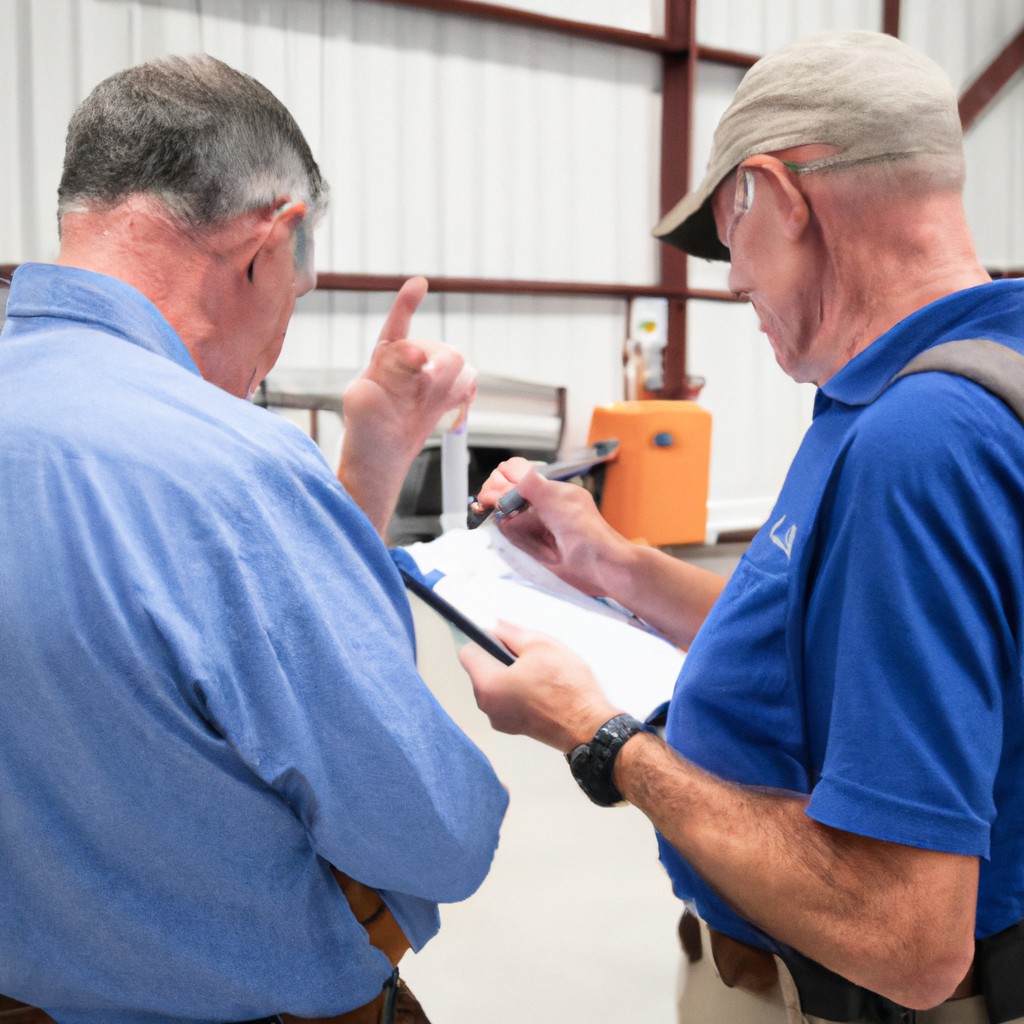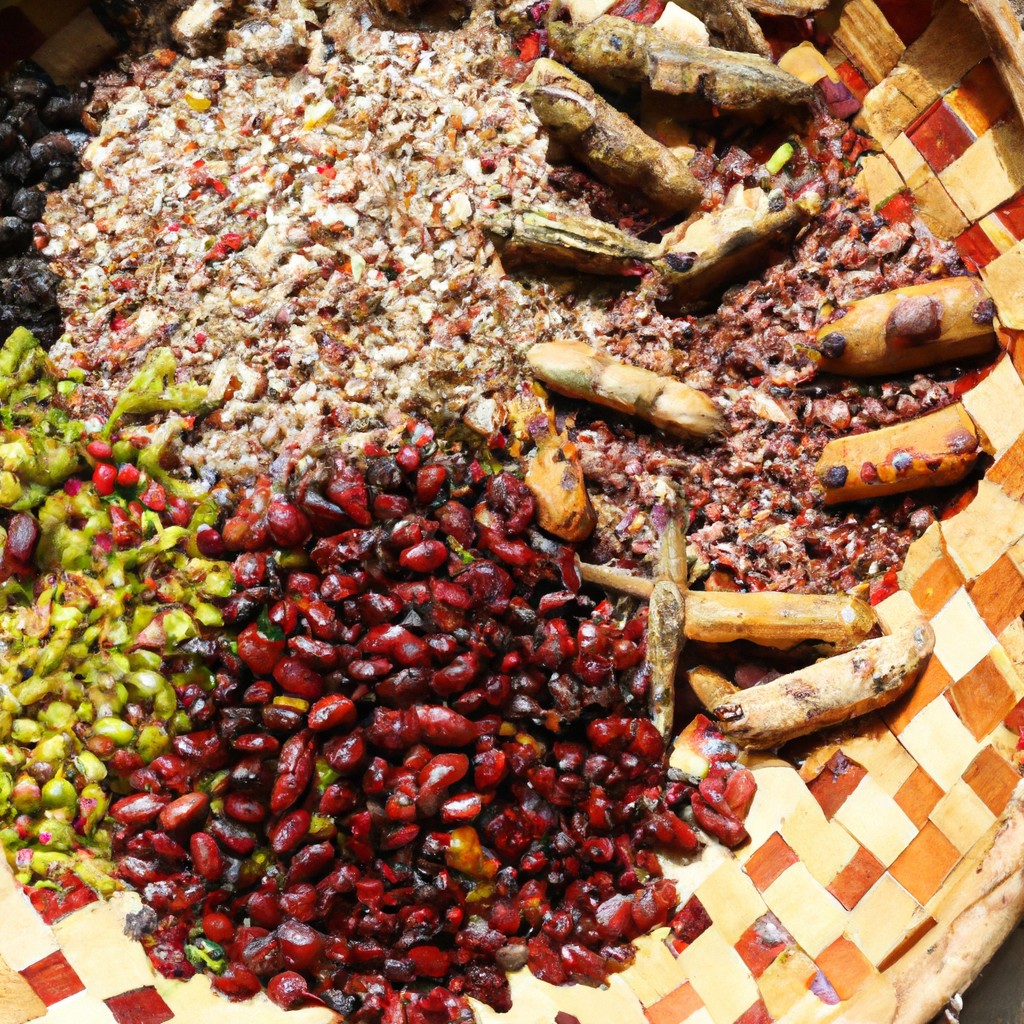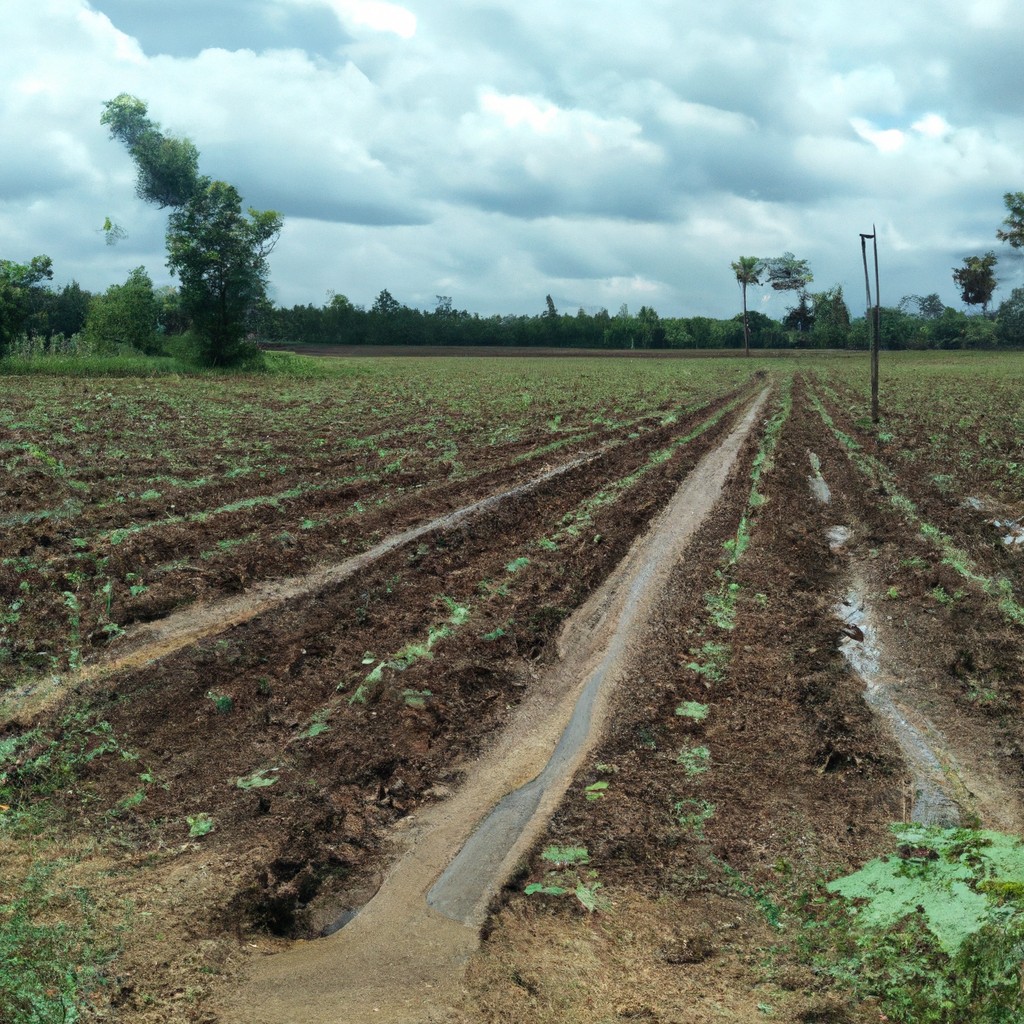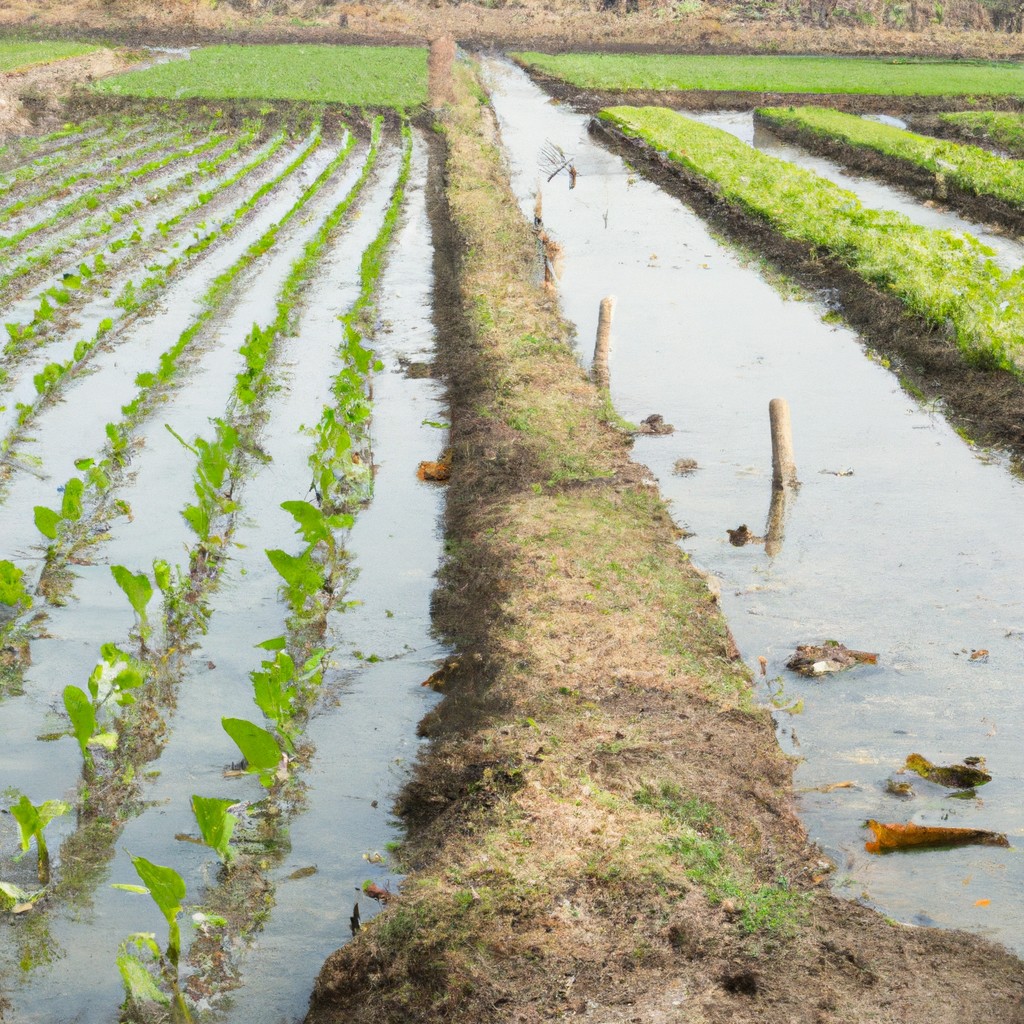Embarking on the journey to becoming a precision agriculture technician involves a blend of technical skills, agricultural know-how, and understanding of sustainable farming practices.
Embarking on a journey to become a precision agriculture technician is an exciting endeavor that merges technology with sustainable farming practices. This role is pivotal in today’s agricultural landscape, where efficient use of resources and data-driven decision-making are key to sustainable farming.
To become a precision agriculture technician, one needs to acquire a blend of knowledge in agriculture, technology, and data analysis. This article will guide you through the educational requirements, skills needed, and potential career paths in this dynamic field. It will also provide insights into the daily tasks of a precision agriculture technician and the impact of this role in promoting sustainable and regenerative farming.
Key takeaways:
- Precision agriculture technicians deploy and maintain farming technologies.
- Strong technical and communication skills are essential for the role.
- Proficiency in GPS, GIS, drones, and robotic farming equipment is required.
- Database management and analytical software skills are vital for data analysis.
- Precision agriculture technicians need a degree in precision agriculture or a related field.
Look Inside:
Job Description of a Precision Agriculture Technician

As highly skilled professionals in the agriculture industry, precision agriculture technicians deploy, operate, and maintain a wide array of advanced farming technologies. These technologies range from GPS systems, and mapping apps, to precision planting equipment.
Furthermore, they’re in charge of analyzing data collected through these technologies to make strategic decisions about crop planting, care, and harvesting. The objective is always to increase yield and improve the overall sustainability of farming operations.
They effectively bridge the gap between technology and sustainable farming, playing a vital role in transforming the industry into a data-driven one.
Skills Required for a Precision Agriculture Technician
To excel in this role, a strong foundation in both hard and soft skills is essential. Hard skills include a deep understanding of technology and its application in agriculture, such as GPS, soil scanning, data management, and GIS systems. Simultaneously, the technician should be competent in analyzing the collected data and making insightful decisions to enhance farming outcomes.
Soft skills are just as crucial. These include problem-solving skills to address challenges, good communication skills to liaise between farmers and technology providers, and a knack for detail-oriented tasks. Strong critical thinking capabilities enable the evaluation of various farming solutions, while adaptability allows a smooth transition to swiftly changing technology landscapes. A natural curiosity or inclination towards continuous learning goes a long way in keeping up with the latest trends and advancements in precision farming technology.
Technology Skills for Precision Agriculture
A thorough understanding of Global Positioning System (GPS) and Geographic Information System (GIS) is crucial. These tools help in mapping fields and analyzing soil characteristics to make informed planting decisions.
Proficiency in the use of drones, on the other hand, is critical for real-time field monitoring, detecting diseases, and assessing crop health.
Technicians are also required to familiarize themselves with robotic farming equipment that automate tasks like planting, fertilizing, and harvesting.
Additionally, a working knowledge of automated irrigation systems, capable of adjusting water distribution based on real-time field data, is beneficial.
Ultimately, the objective is to leverage these technologies for efficient, sustainable farming that maximizes yield while minimizing wastage.
Understanding of Data Base User Interface and Query Software
To excel in precision agriculture, mastery of database management systems, including user interfaces and query software, is crucial. These tools allow technicians to input, organize, and extract relevant data efficiently, facilitating informed decision-making and improving farm operations.
Considering the vast amount of data involved, from soil composition to weather patterns, a strong command of these systems is indispensable. It can elevate a technician’s ability to analyze key farming metrics, draw actionable insights, and subsequently devise strategies that enhance the sustainability and productivity of farming operations.
Practical training or certification in a commonly utilized system like SQL or Python could prove beneficial.
Proficiency in Analytical or Scientific Software
Harnessing the power of analytical or scientific software is a vital aspect of precision agriculture. These tools assist in managing and interpreting vast amounts of data, from crop yields to soil characteristics. Proficiency in these software tools can streamline activities such as crop modeling, farm management, and farm mapping. They enhance decision-making capabilities, optimize resource management, and ultimately promote sustainable farming by revealing patterns and insights that might not be immediately evident. As a precision agriculture technician, having this proficiency sets the stage for a successful, impactful career.
Understanding of Presentation Software for Precision Agriculture
Harnessing the full potential of precision agriculture involves presenting complex data in an understandable, usable format. To meet this need, numerous software platforms have been developed. Proficiency in these tools is vital, allowing technicians to visualize, analyze and explain data trends effectively to farm owners, managers, and stakeholders.
These presentation tools enable precision agriculture technicians to transform raw data into actionable strategies for crop management, equipment usage optimization, and resource allocation. Familiarity with these software platforms elevates a technician’s capacity to communicate strategies and direct actions that enhance farm sustainability and productivity.
Education Requirements for a Precision Agriculture Technician
Obtaining a degree in Precision Agriculture or a related field, such as agronomy, agricultural science, or environmental science is typically the first step in this career path. Study programs often encompass essential areas like soil science, plant science, GPS technology, field mapping, and data analysis – all key components of precision farming.
Many institutions also provide specialized courses exploring the use of drones, sensors, and machine learning in farming. Some positions may require advanced degrees or further vocational training for handling complex farming equipments and software.
Ultimately, the level of education needed may vary based on specific job requirements, but a solid academic foundation in agricultural technology is undoubtedly vital.
Role of Mathematics in Precision Agriculture Technology
Algebra, geometry, trigonometry, and calculus form the backbone of precision agriculture. These mathematical areas are vital as they enable the accurate interpretation of data collected through GPS and GIS technologies.
For instance, algebra allows the computation of plant population per field unit, while geometry helps in designing field patterns for efficient resource usage. Calculus, meanwhile, is used in creating models to predict growth patterns and output. Trigonometry comes into play for GPS-based machinery guidance for farming operations.
Overall, these mathematical principles drive critical decision-making, aiding in waste reduction, resource optimization, and enhancing the farm’s productivity.
Visual Understanding Importance in Precision Agriculture
The precision agriculture technician’s role demands a proficient understanding and interpretation of visuals such as GIS maps, satellite and drone imagery. This ability aids in detecting changes in fields over time, such as pest infestations or variations in soil moisture.
Identifying these patterns on time contributes vitally to efficient resource utilization and optimal crop growth. Through early intervention, it aids in mitigating potential losses and enhancing productivity, thus playing a central role in agricultural sustainability.
Training programs offer courses in remote sensing and geographic information systems to assist in cultivating these critical skills.
Problem Solving Skills in Agriculture Technology
Facing unforeseen challenges and obstacles is inevitable in the field of precision agriculture. To navigate these hiccups successfully, strong problem-solving skills are essential.
These range from addressing technical issues to identifying and implementing the best agricultural strategies based on data. For instance, a technician might need to calibrate or repair malfunctioning sensors or interpret complex data to find the most efficient planting or irrigation strategy.
Thus, a blend of critical thinking, creativity, and expertise in machinery operation and data interpretation are key components in the successful problem-solving toolkit of a precision agriculture technician.
Training and Credentials Required for Precision Agriculture Technicians
Achieving the necessary credentials typically begins with earning an associate’s or bachelor’s degree in precision agriculture or a related field. Subjects taught at these degree levels include geospatial technology, data analysis, crop science, and machinery operation.
In addition, some technicians opt to gain certifications to enhance their portfolio. Industry-recognized organizations, such as the American Society of Agronomy, offer Certified Crop Adviser (CCA) and Precision Agriculture Specialist certifications.
Notably, participation in internships during academic years can provide practical experience, which can prove advantageous when entering the job market.
PMID: 31110998
Experience Requirements for a Precision Agriculture Technician
While entry-level positions may require minimal experience, roles with more responsibility often demand practical exposure to agriculture, geospatial technology, data analysis, and equipment calibration. Typically, employers appreciate applicants who’ve spent one to two years in a related role – either during educational internships or post-graduation. This hands-on experience deepens understanding of precision agriculture tools and methodologies, enabling the technician to effectively optimize yield and improve environmental sustainability. Professional certifications, though not mandatory, can further augment these experiences, increasing employability.
Occupational Requirements for Precision Agriculture Technicians
As a precision agriculture technician, familiarity with industry-specific regulations and standards is vital. A strong awareness of agricultural safety rules, environmental and conservation guidelines, and the stipulations of agricultural law can be imperative.
Navigation of zoning rules and obtaining necessary permits for certain farming activities form key functional aspects. Also, understanding the plants’ biology, pests, diseases, and weather patterns may be required, along with knowledge of the use and maintenance of agricultural machinery and tools.
Furthermore, a passion for sustainability, combined with the ability to continuously adapt to evolving technologies, serves to fulfill the occupational prerequisites of this role.
Detailed Work Activities of a Precision Agriculture Technician
A typical day in the life of a precision agriculture technician is predominantly marked by the handling of various high-tech tools and software. These may include Geographic Information System (GIS) tools or Global Positioning System (GPS) technologies to monitor crop growth patterns, soil composition, and weather data.
Technicians often spend time interpreting data from these tools, making suggestions for optimal farming techniques or pest control methods.
Reliable communication between farm managers and equipment dealers is a regular aspect of the role, often involving thorough explanation of technical information or troubleshooting assistance.
Additionally, managing maintenance schedules or overseeing the repair of precision agriculture equipment is a common responsibility.
Overall, the role extends beyond data analysis, requiring effective communication skills and a comprehensive understanding of both agricultural and technological processes.
Job Outlook for Precision Agriculture Technicians
The prospect of job opportunities in this field is promising given the growing reliance on technology in agriculture. Precision agriculture technicians are witnessing increasing demand with a positive growth trend forecasted for the next decade.
This is largely due to higher adoption rates of precision agriculture technologies in farming aiming to enhance crop productivity and minimize environmental impact. In addition, these technicians play a key part in facilitating sustainable farming, which aligns with the global movement towards reducing carbon footprints and achieving food security.
Hence, for those equipped with the right skills and qualifications, the potential for a fulfilling, impactful career in precision agriculture is bright.
FAQ
How do I get into precision agriculture?
To get into precision agriculture, one must generally attain a bachelor’s degree in agricultural technologies, agronomy, or a relevant field, and having prior sales experience could further enhance the chances due to the importance of building and maintaining customer relationships.
What skills do you need to be a precision agriculture specialist?
A precision agriculture specialist needs to have strong analytical and problem-solving skills, proficiency with GPS and agricultural hardware, software, systems, and applications, as well as proficiency with Microsoft Office Suite or related software.
What is the job outlook for a precision agriculture technician?
The job outlook for a precision agriculture technician is expected to decrease annually by 4.76 percent, leading to an estimated reduction of 18,800 jobs by 2029.
Is precision agriculture worth it?
Yes, precision agriculture is indeed worthwhile, as it allows for significant reduction in water usage and offers farmers efficient monitoring systems, saving field time.
What educational requirements are necessary to pursue a career in precision agriculture?
A career in precision agriculture typically requires a bachelor’s degree in agriculture, agronomy, crop science, or related field, along with a robust understanding of GPS and GIS technology applications in farming.
How does technological advancement impact the role of a precision agriculture technician?
Technological advancement enables a precision agriculture technician to analyze farm data more accurately and efficiently, facilitating informed decision-making for improved crop management and productivity.
What are the typical day-to-day activities involved in a precision agriculture technician’s job?
A precision agriculture technician’s daily activities typically include utilizing GPS and GIS systems, calibrating and operating precision farming equipment, collecting and analyzing field data, and making recommendations for soil and crop management based on precise data findings.




